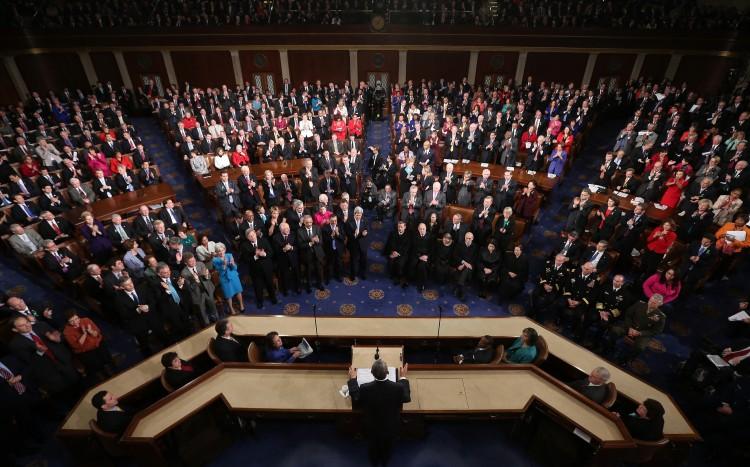WASHINGTON—President Barack Obama laid out an ambitious agenda in his State of the Union address Tuesday night, some calling it historic in its vision as others questioned whether he went too far.
Showing some of the vigor evident during his campaign, Obama capitalized on his recent electoral win to introduce a broad range of initiatives, including many that were new to Congress.
Among these were calls for high-quality preschools to be available for every American child, an increase in the minimum wage, a boost in manufacturing hubs around the country, and initiatives to make it easier to vote. The proposals drew standing ovations from supporters gathered for the joint sitting of Congress.
“It is our unfinished task to make sure that this government works on behalf of the many and not just the few, that it encourages free enterprise, rewards individual initiative, and opens the doors of opportunity to every child across this great nation,” he said.
President Obama confirmed that he would pursue gun control measures, climate change initiatives, and tax and immigration reforms.
He also stated that he would withdraw 34,000 U.S. troops from Afghanistan by this time next year.
A Stand-Out Address
Dr. Kathleen Kendall, a specialist in political communication at the University of Maryland, says State of the Union (SOTU) addresses are traditionally dry—and often forgettable—but Obama’s delivery on Tuesday will go down in history.
“This one will stand out more than others,” she said.
Traditionally, the president updates Congress on what has been achieved during the previous year. Obama said 6 million new jobs have been added, more people are buying American cars, domestic oil production is up and U.S. companies are returning home to manufacture.






